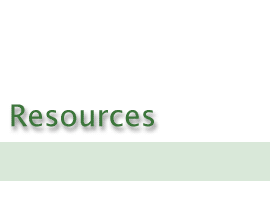

|
Arts and CultureThe Creative Work Fund invites artists and nonprofit organizations to create new art works through collaborations. It celebrates the role of artists as problem solvers and the making of art as a profound contribution to intellectual inquiry and to the strengthening of communities. Human RightsUniversal Declaration of Human Rights On December 10, 1948, the General Assembly of the United Nations adopted and proclaimed the Universal Declaration of Human Rights, the formal recognition of the fundamental inherent rights of all people. Freedom to Marry is a New York-based organization working to secure civil marriage equality for same-sex couples. It serves as a resource clearinghouse for strategy and message development, non-gay ally building, and small-scale regranting to state and local organizations. Glossary of Terms Relating to Sexuality and Gender This glossary was compiled from the following sources: Gender Equity Resource Center at the University of California, Berkeley; Gender Public Advocacy Coalition (a Columbia Foundation grantee); Youth Gender Project (a Columbia Foundation grantee), and; gayhistory.com. Sustainable Communities and EconomiesPrinciples of Sustainable Development Emphasize sustainability as the goal: Concentrate on developing the overall quality of life, with a view toward considerations of ecology, resources, social and economic justice, rather than focusing on growth, market forces and the concentration of profit. Reduce human pressure on ecosystems by shifting development practices away from continual growth as the goal, consumption as the purpose, and waste as the effect of economic development: Aim for a secure, stable and satisfying quality of life for all within the means of nature and a sustainable ecological footprint, especially for those with the greatest unmet material needs. Reduce human pressure on ecosystems by respecting the carrying capacity and regenerative capacities of the Earth's ecosystems: Strive to provide secure and sustainable livelihoods for people through meaningful work and the improved educational, social and economic status of all - especially women - so as to stabilize the human population and reduce excess consumption in order to live in harmony with the natural world. Maximize the vitality of local economies: Promote the development of highly diversified, integrated, small scale, and ecologically based regional economies as the primary means to satisfy basic human needs and provide sustainable livelihoods. Center for Ecoliteracy: Rethinking School Lunch This web guide supports the business planning process for innovative school lunch programs and education for sustainability. Identified are ten components that provide a practical framework for enhancing school lunch programs, leading to healthier children and improved student performance. Rethinking School Lunch is part of a national effort to restore the connection of farms to communities, meals to culture, and health to the environment. On this site, fifty-seven patterns provide a framework for an ecologically restorative, socially just, and reliably prosperous society. They are adaptable to local ecosystems and cultures, yet universal in their applicability. Together they form what is called a Conservation Economy. Green economic development regenerates individuals, communities and environments. It is based in a redefinition of wealth in terms of regeneration, health and balance, and not primarily in terms of money or capital accumulation. Pop Sustainability connects tens of millions of young people around the world through media, events and strategic partnerships. It encourages young people to think creatively, connect with people and organizations, and act for a more sustainable world. Real World is a unique coalition of UK not-for-profit organizations campaigning in one or more of the following five policy constituencies of sustainable development: Environmental Sustainability; Social Justice; Eradication of Poverty; Peace and Security; and Democratic Renewal. The Roots of Change (ROC) Fund is a foundation collaborative supporting work to catalyze the transition to a healthier food system and a healthier environment in California. The goal of the ROC Fund is to transform California food systems by identifying and providing funding for high-leverage opportunities to support the transition to sustainable food systems. Sustainable Communities Network The Sustainable Communities Network seeks to increase the visibility of what has worked for other communities, and to promote a lively exchange of information to help create community sustainablilty in both urban and rural areas. Zero Waste Around the World works to eliminate the waste of natural and human resources. They utilize classic activist strategies to achieve corporate accountability for waste and public policies to eliminate waste, and to build sustainable communities. Redefining Progress Ecological Footprint Calculator This is a basic questionnaire to calculate a quick and relatively accurate Ecological Footprint for an individual living in the US. The Ecological Footprint is the land and water area that is required to support a defined human population and material standard indefinitely, using prevailing technology. The Ecological Footprint Accounts compute sustainability in specific and understandable terms by using the best available scientific data. They allow individuals, policy analysts, organizations, and governments to measure and communicate the economic, environmental, distributional and security impacts of natural resource use. The Earth Charter is an authoritative synthesis of values, principles, and aspirations that are widely shared by growing numbers of people in all regions of the world regarding sustainable development. Philanthropy and the Nonprofit sectorCalifornia Association of Nonprofits The California Association of Nonprofits (CAN), a statewide membership organization of over 1,740 diverse nonprofits, is dedicated to protecting, strengthening, and promoting nonprofit organizations in California. The Council on Foundations is a membership organization promoting and enhancing responsible and effective philanthropy. Environmental Grantmakers Association The Environmental Grantmakers Association (EGA) is a voluntary association of foundations and giving programs concerned with the protection of the natural environment. The Foundation Center's mission is to support and improve institutional philanthropy by promoting public understanding of the field and helping grantseekers succeed. Founded in 1956, the Center is the nation's leading authority on institutional philanthropy and is dedicated to serving grantseekers, grantmakers, researchers, policymakers, the media, and the general public. Funders for Sustainable Food Systems The Funders for Sustainable Food Systems (FSFS) - formerly the Funders Agriculture Working Group (FAWG) - is a California-based group of public and private grantmakers whose mission is to promote a sustainable agriculture and food system in California that protects the environment, human health and the welfare of farm animals; supports all parts of an economically viable agriculture sector and provides just conditions and fair compensation for farmers and workers; provides all people with locally-produced, affordable and healthy food; and contributes to the vitality of rural and urban communities and the links between them. Funders for Lesbian and Gay Issues Funders for Lesbian and Gay Issues is the only national organization whose mission is to advocate for increased support of Lesbian, Gay, Bisexual, and Transgender (LGBT) issues within organized philanthropy. Funders for Lesbian and Gay Issues is comprised of individual donors and grantmakers from private, public, family, corporate and community foundations. Since its founding in 1985, Grantmakers in the Arts (GIA) has been the only national organization focusing on philanthropy in the arts and culture. GIA aims to strengthen the field of private sector arts grantmaking by improving communication, information exchange, and peer learning within the field as a whole; increase the presence of arts philanthropy within the broader foundation and policy making communities, thereby promoting more meaningful support of arts and culture; and support individual arts grantmakers in increasing their effectiveness and their capacity to meet their objectives. Independent Sector works to promote, strengthen, and advance the nonprofit and philanthropic community to foster private initiative for the public good in order to foster a just and inclusive society of active citizens, vibrant communities, effective institutions, and a healthy democracy. National Committee for Responsive Philanthropy The National Committee for Responsive Philanthropy (NCRP) is a nonprofit organization dedicated to promoting philanthropy that addresses the unmet needs of disadvantaged populations, including very low-income communities, people of color, gay/lesbian/bisexual/transgender populations, and other groups facing discrimination or marginalization. NCRP conducts action research, provides technical assistance to nonprofits, and engages in policy advocacy. National Network of Grantmakers The National Network of Grantmakers (NNG) is an organization whose members are involved in funding social and economic justice. NNG is committed to the goal of increasing resources, financial and otherwise, to organizations working for social change. The Neighborhood Funders Group is a national network of foundations and philanthropic organizations. Its members support community-based efforts that improve economic and social conditions in low-income communities. NFG provides information, learning opportunities, critical thinking and other professional development activities to its members. Northern California Grantmakers Northern California Grantmakers is an association of foundations, corporate contributions programs and other private donors and grantmakers. It seeks, through philanthropy, to promote the well-being of people and their communities, in balance with a healthy environment. Sustainable Agriculture & Food Systems Funders SAFSF is a national working group of the Environmental Grantmakers Association (EGA) that works to foster communication, shared learning and information exchange about issues connected to sustainable agriculture and food systems.
|
 |
 |
 |